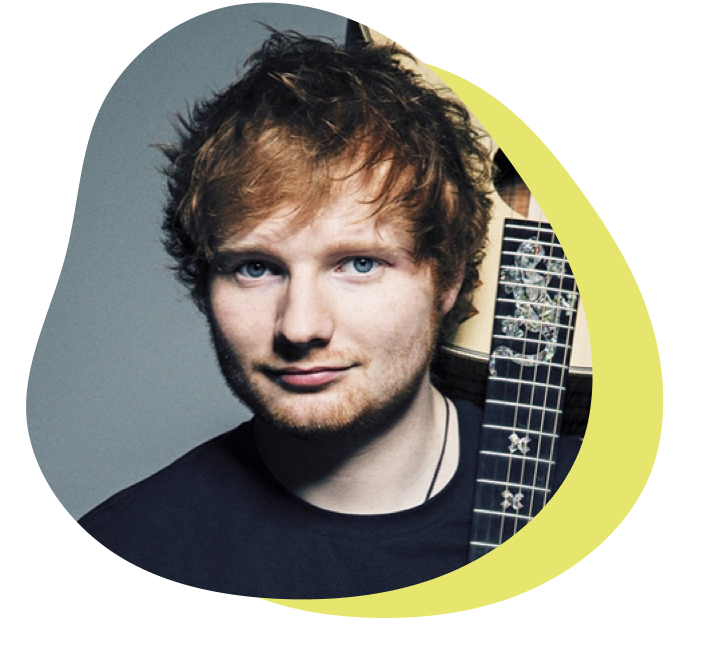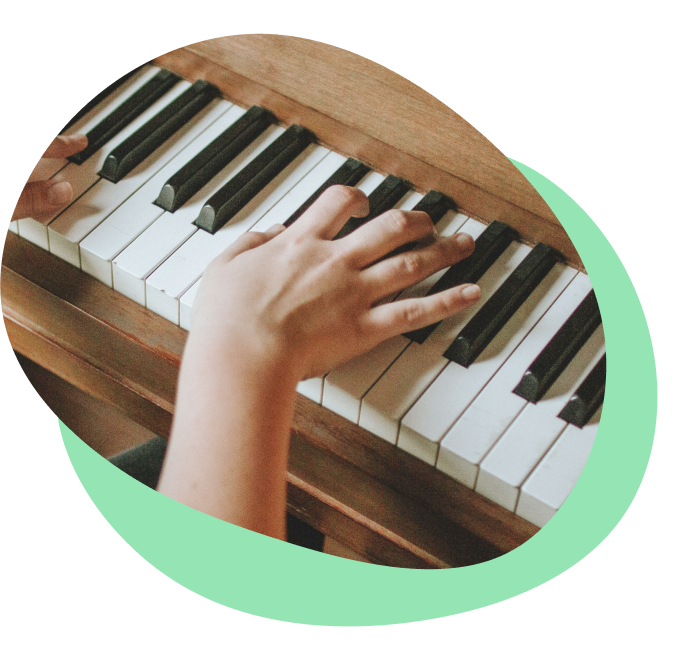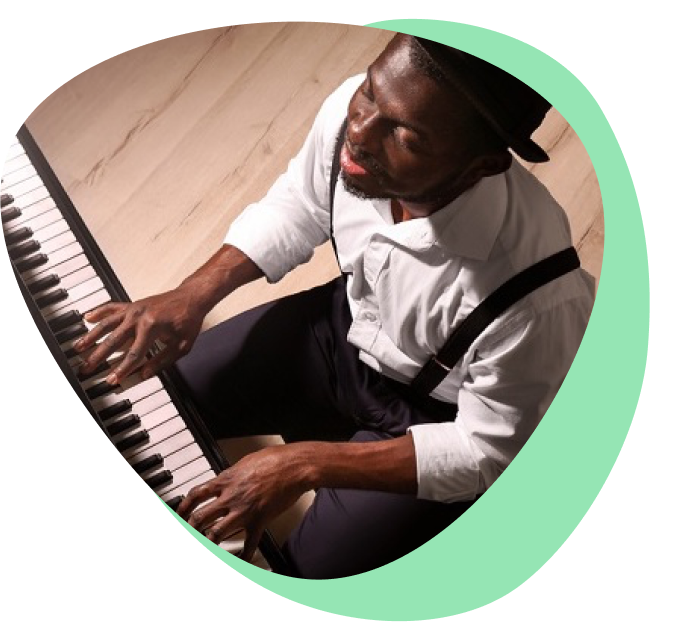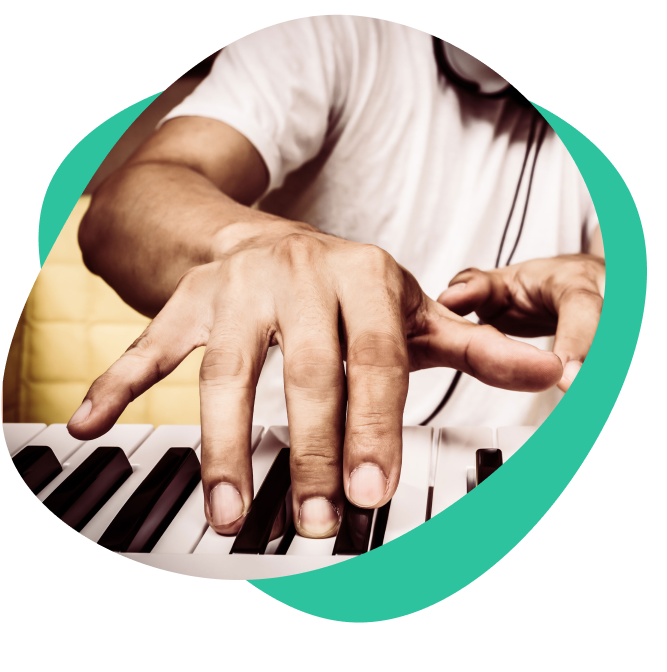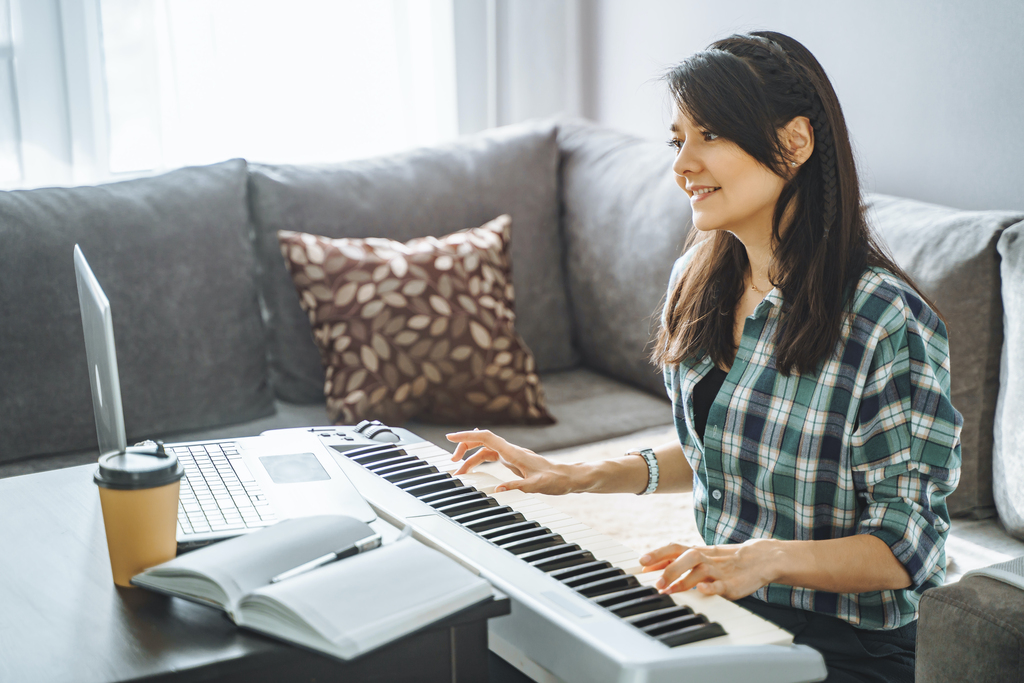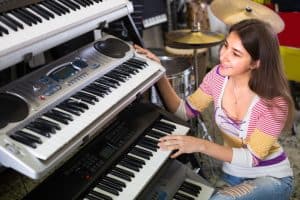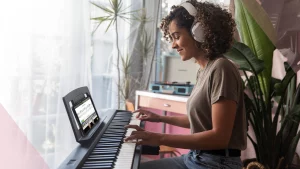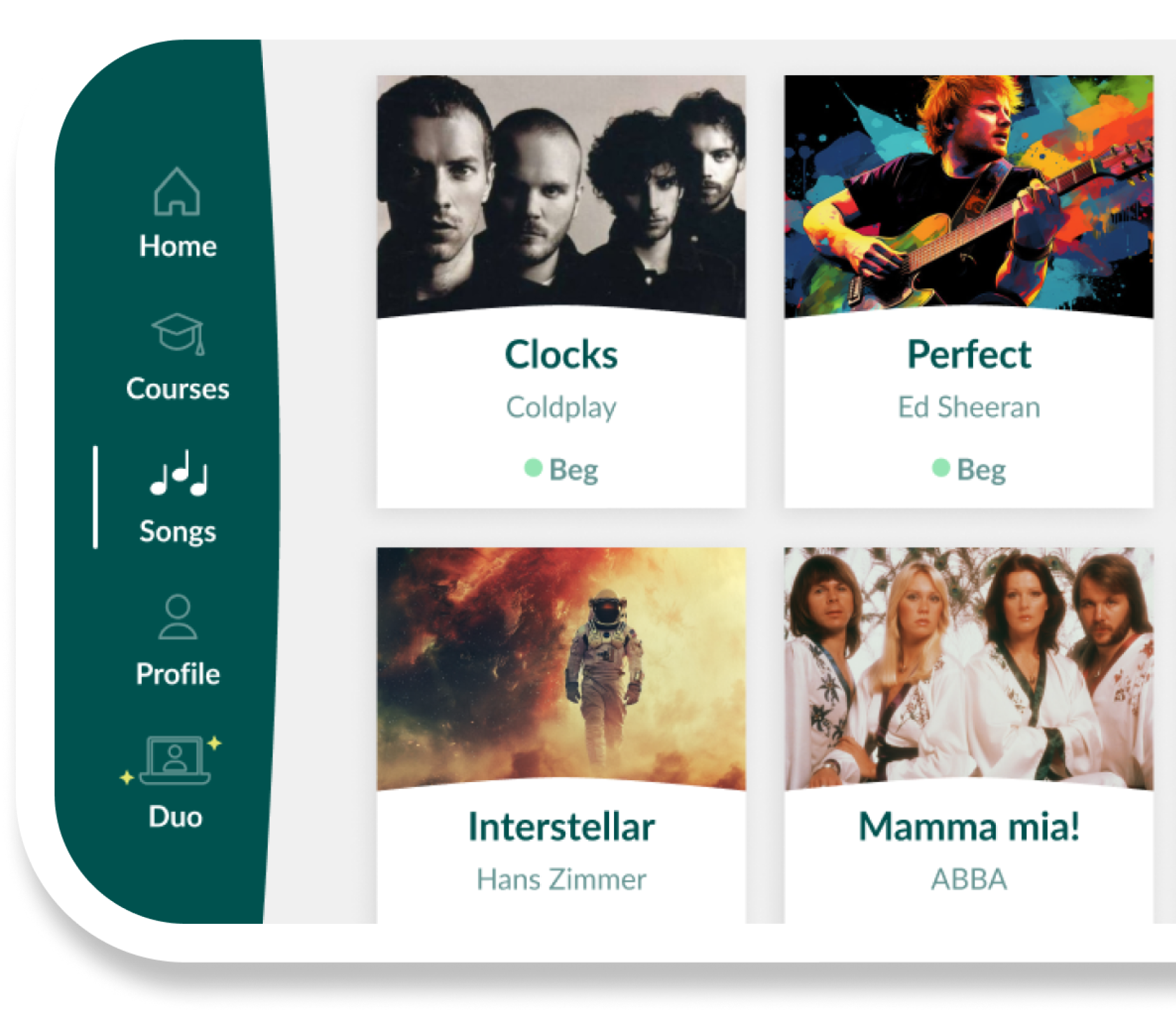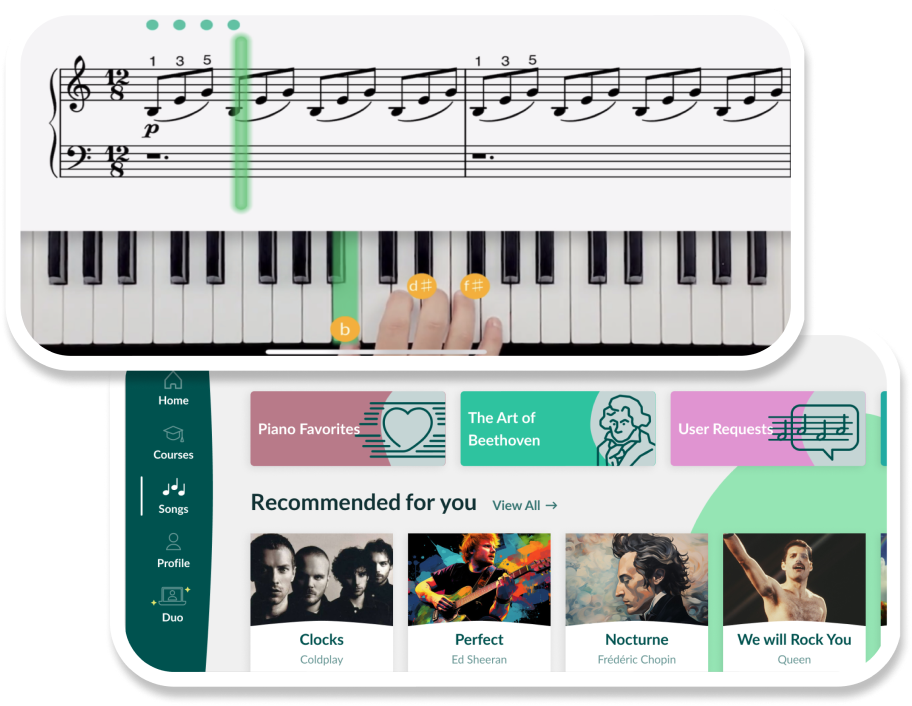You are interested in learning to play the piano. That is a great decision and one that will enrich your life in completely unexpected ways! Learning to play a musical instrument is one of the best decisions anyone can make.
However, you may be wondering how long does it actually take to learn the piano? You may see videos online of young children performing flawless versions of repertoire that seems extremely difficult. You may have friends that play with ease and poise and wish to do the same yourself.
Learning to play the piano takes time – there are no shortcuts. However, you can use the following tips and tricks to gauge how long it will take you to learn piano.
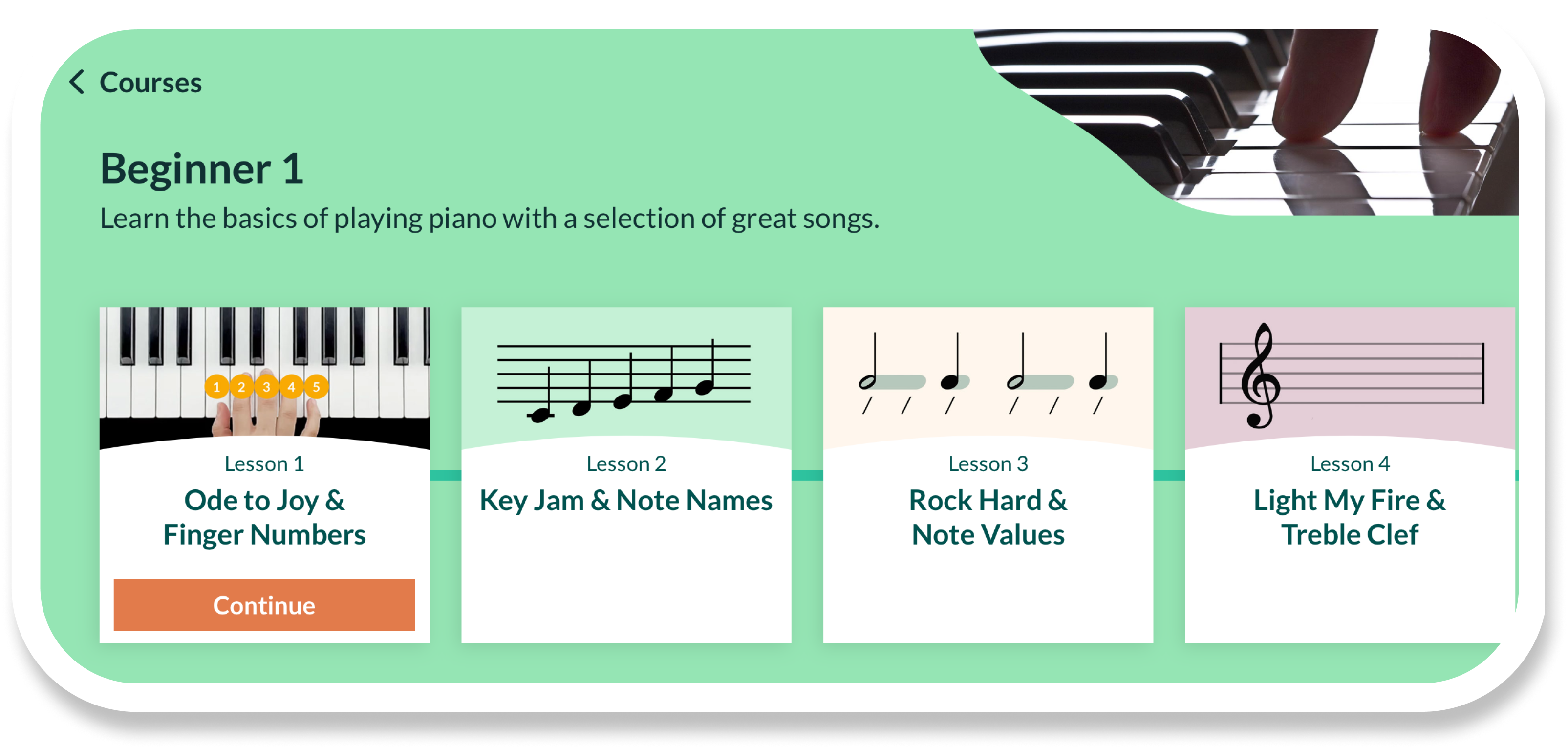
Time is your friend
The truth is, it depends on how much time you are willing to invest in practicing the piano. Learning the piano, and music in general, is a lifelong pursuit that truly never ends. There are infinite perspectives and avenues to explore in music that you can spend a lifetime exploring it hours and hours every day and never reach the end.
That being said, it really does not take that long at all to learn how to play the piano, on a basic level. You can learn some basic finger patterns, scales, and chords and be able to play many songs you enjoy. You can also learn to play by ear and build your ear training skills, or the ability to learn new songs on piano without reading music.
What should I practice?
You will only be able to achieve the necessary dexterity for your fingers and hands if you practice consistently and regularly. Set up a specific time each day for piano practice in order to improve your skills quickly. Remember, the greater your skill level, the better you will be able to play and learn, and the more material you will have access to.
The more you practice, the better your overall sound will get. You will feel fantastic when you begin to see results from your piano practice, and this sensation will drive you to work even harder.

Learn to memorize all the notes
Learning piano and music in general is a lot like learning a new language. There is a new alphabet to learn as well as finger placements on the keyboard that correspond to those new letters.
Spending time getting to know these letters and their corresponding keys on the piano is your first step to learning how to play piano. If you don’t know sounds, how can you speak the language?
You should quickly realize that there are a number of basic patterns that repeat on the keyboard. Once you see this, you will have unlocked the mystery of the piano keyboard layout.
Learn some basic finger patterns
The piano is full of patterns, like a matrix or computer. It is beautiful. You can learn the piano faster by learning some of these basic finger patterns.
The basic pattern is to move all five fingers in a row across five sequential keys on the piano. With your right hand, place your thumb (1st finger) on C, your index finger (2nd finger) on D, your middle finger (3rd finger) on E, your ring finger (4th finger) on F, and finally your pinky finger (5th finger) on G.
Then, start with your 5th finger on G, and descend the pattern back down in sequential order so that you end with your 1st finger on C. Excellent work!
Practice this pattern with your right hand, left hand, and then both hands together. Next, move the starting point of the pattern up and down on the keyboard. Start the pattern from D, E, F, G, A, B, etc. until you can comfortably play it from all the white keys with both hands.
Learn some basic chords
Just as there are some basic finger patterns on the piano that repeat in many different ways, there are a handful of chord patterns and progressions that show up in literally hundreds of songs, including many of your favorites!
A chord is simply the combination of two or more piano notes played together. Anytime you play two notes together, you have a chord!
The most common and basic type of chords are called triads. Triads are three notes chords. Think triangle or triceratops – words with the prefix -tri indicate a group of three.
Start again on C with your right hand first finger, followed by E with your third finger, and finally G with your fifth finger. This is a C major triad:

The C major triad is used in hundreds of songs. Once this shape feels comfortable to you in both hands, take the pattern and move it up and down the keyboard. Think of the basic pattern as skipping every other key on the piano.
For example, the next pattern would include the notes D – F – A, next would be E – G – B, after that would be F – A – C, then G – B – D, followed by A – C – E, then B – D – F, and finally again on C – E – G. If you master these 7 basic chord patterns, you will be well on your way to learning the piano!
Use an app or a program
Finally, the quickest way to learn the piano is to follow a structured program to guide your progress. It does not take much time, maybe 10 – 20 minutes per day. But, having a structured program to follow designed by professional musicians and educators will help deliver all the benefits of music education.
Apps like Skoove are designed to provide a step-by-step program to develop your piano skills quickly and easily. With the help of a well-designed piano learning app, you will find that it really does not take that long at all to learn the piano!
Author of this blog post

Eddie Bond is a multi-instrumentalist performer, composer, and music instructor currently based in Seattle, Washington USA. He has performed extensively in the US, Canada, Argentina, and China, released over 40 albums, and has over a decade experience working with music students of all ages and ability levels.



